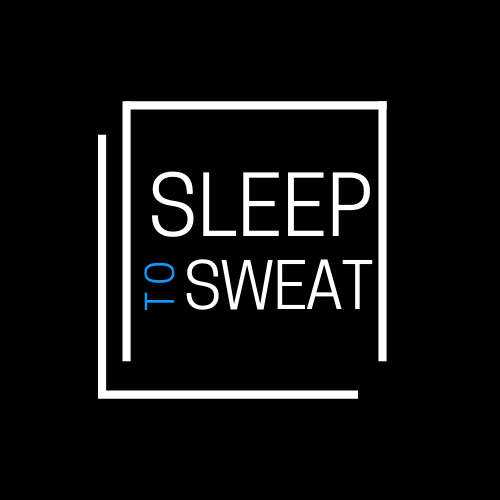Revitalize your body and mind.
dedicated to helping readers achieve their fitness and wellness goals through the power of sleep.


Committed to expertise
Real sleep tips for real people.
At Sleep to Sweat, we understand that fitness and wellness are not just about working out and eating well. They are also about giving your body the time and space it needs to recover and recharge. That's why we focus on the importance of sleep and how it can help our readers achieve their desired results.
Your sleep is our forte.
We believe that quality sleep is the foundation of a healthy and active lifestyle
Healthy sleep, healthy life.

How Technology Impacts Your Sleep: Understanding the Connection
In our modern, interconnected world, technology has become an integral part of our daily lives. While it brings numerous conveniences and advancements, its pervasive presence has also raised concerns about its impact on sleep quality. In this blog post, we'll delve into the intricate relationship between technology and sleep problems, exploring the ways in which our digital habits may be affecting the crucial restorative hours of sleep.
Blue Light and Circadian Rhythm Disruption:
The Culprit: Blue Light Emission: Screens on electronic devices emit blue light, which can interfere with the body's natural production of melatonin, a hormone that regulates sleep-wake cycles.
Nighttime Exposure: Extended exposure to screens, especially in the evening, can disrupt circadian rhythms, making it harder to fall asleep and achieve restful slumber.
Screen Time and Sleep Duration:
Digital Distraction: The allure of smartphones, tablets, and computers often leads to increased screen time, potentially displacing essential sleep hours.
Quality vs. Quantity: While technology may contribute to reduced sleep duration, it can also impact the overall quality of sleep, affecting factors like sleep depth and the number of times one wakes up during the night.
Social Media and Sleep Anxiety:
FOMO (Fear of Missing Out): The constant connectivity of social media platforms can contribute to feelings of FOMO, creating anxiety that may interfere with the ability to relax and unwind before bedtime.
Late-Night Scrolling: Engaging with social media late into the night can lead to delayed sleep onset, as the mind remains stimulated by the content consumed.
Digital Devices in the Bedroom:
Electronic Overload: The presence of digital devices in the bedroom, such as smartphones and tablets, can tempt individuals to engage in non-sleep-related activities, further delaying bedtime.
Establishing Boundaries: Creating a tech-free zone in the bedroom helps establish boundaries, signaling to the brain that the bedroom is primarily a space for relaxation and sleep.
Alerts and Notifications:
Interrupted Sleep: Audible alerts and notifications from devices can interrupt sleep cycles, leading to fragmented and less restorative sleep.
Do Not Disturb Mode: Utilizing "Do Not Disturb" mode or turning off non-essential notifications during sleep hours can minimize disruptions and enhance sleep continuity.
Virtual Entertainment and Late-Night Binging:
Binge-Watching Impact: Streaming services and online entertainment platforms offer an abundance of content, tempting individuals to engage in late-night binge-watching sessions.
Establishing Viewing Limits: Setting designated times for entertainment consumption and avoiding binge-watching close to bedtime can help mitigate the impact on sleep.
Gaming and Arousal Levels:
Elevated Arousal: Video games and interactive digital entertainment can stimulate the brain and elevate arousal levels, making it challenging to transition into a state of relaxation conducive to sleep.
Time Limits and Mindful Gaming: Establishing time limits for gaming and choosing games that promote relaxation rather than heightened excitement can support healthier sleep habits.
Conclusion: While technology has undoubtedly transformed the way we live, work, and connect, its influence on sleep cannot be ignored. Recognizing the potential impact of excessive screen time, blue light exposure, and digital engagement on sleep problems is the first step toward fostering healthier sleep habits. By implementing mindful strategies, such as setting boundaries on screen time, creating tech-free zones, and establishing bedtime routines that prioritize relaxation, individuals can navigate the digital landscape more consciously and reclaim the restorative power of a good night's sleep. Balancing the benefits of technology with the need for quality sleep is key to achieving overall well-being in the digital age.
One or more of the links above are affiliate links, meaning, at no additional cost to you, we will earn a slight commission if you click through and make a purchase. Each of these products is chosen by a trusted member of our team.



